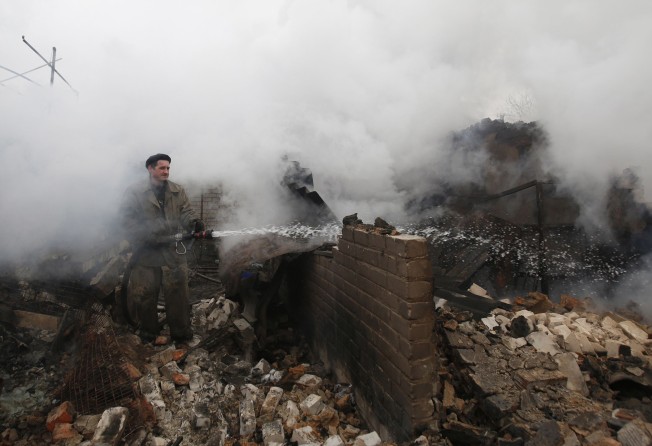Emerging markets better placed to cope with the ‘great unwind’

For signs of froth in global debt markets, look no further than Ukraine’s first international bond sale since Russia’s annexation of Crimea in 2014 which led to a proxy war between the two countries which endures to this day.
On Monday, Ukraine, whose credit rating is deep in “junk” territory and whose economy shrank by nearly 17 per cent in 2014-15, managed to raise US$3bn in a 15-year, dollar-denominated bond sale at a yield of 7.3 per cent and which was three times oversubscribed.
Other risky “frontier” markets, such as Iraq and Bahrain, have also issued dollar bonds in the past few weeks, while Tajikistan, a small central Asian economy which raised US$500m of 10-year debt earlier this month, had to include a map in its bond prospectus to help investors locate the country.
If this is not an indication of the extent to which yield-hungry international investors are willing to move up the risk curve despite the threat posed by the withdrawal of monetary stimulus by leading central banks and stretched valuations in bond and equity markets, then what is?
Investors’ ferocious appetite for emerging market assets – cumulative inflows into emerging market bond and equity funds so far this year have surged to US$136 billion, three times the inflows for the whole of 2016, according to JPMorgan – is sharpening the focus on developing economies, raising questions over whether the rally has gone too far.
This year’s dramatic 29 per cent rise in the MSCI Emerging Market Index, the leading equity gauge for developing economies, has pushed valuations (as measured by the forward price-to-earnings ratio) to their highest level since the start of 2010, according to Bloomberg. Emerging market shares are no longer trading at a hefty discount to their developed market peers, and are now only slightly cheaper than European equities.
More worryingly, the spreads, or risk premium, on emerging market corporate bonds, as measured by the average spread on JPMorgan’s benchmark Corporate Emerging Market Bond Index (CEMBI), have fallen to their lowest levels on record. The sharpest tightening in spreads has been in the high-yield, or non-investment grade, segment of the corporate debt market. Spreads on Latin American junk bonds have fallen to a historic low, while average spreads on emerging market corporate bonds as a whole are lower than those on US high-yield debt.
Yet despite the bubbly conditions in markets, there are reasons to be sanguine about emerging markets as the Federal Reserve starts to unwind its programme of quantitative easing.
One of the most important developments in developing economies since the crises of the 1990s is the dramatic change in the composition of countries’ debt. According to new research from the Bank for International Settlements, only 14 per cent of emerging market sovereign debt outstanding is now denominated in foreign currencies, reducing the risk of a financial crisis stemming from a sharp decline in local currencies.
Just as importantly, the bulk of local currency-denominated government debt in developing economies is now held by long-term institutional investors – the majority of whom are domestic, such as Mexican pension funds and Asian insurers – who are much less likely to sell during periods of severe financial turmoil.
Another reason why emerging markets are better placed to cope with the removal of monetary stimulus is that their defences have strengthened significantly over the past decade. Foreign exchange reserves in Asia, which suffered a devastating crisis in 1997-98 due to severe macroeconomic imbalances, are at a record high. In India, South Korea, Thailand and Indonesia, foreign reserves have risen to their highest level ever because of the plunge in the dollar and the recent surge in capital inflows.
Still, there is no room for complacency.
Emerging markets have yet to undergo a proper stress test. Since the Fed started raising interest rates in 2015, financial conditions have even eased, as I explained in my previous column, while the European Central Bank and the Bank of Japan are still engaged in quantitative easing. As the Bank of International Settlements notes in its latest quarterly review published on Sunday, global asset prices are dangerously dependent on “the very low bond yields that have prevailed for so long.”
A sharp rise in yields stemming from a faster-than-expected removal of stimulus, or a major policy blunder by the Fed or the ECB, could put emerging market assets under significant strain.
Yet this time round, developing economies are better prepared to manage the fallout from a tightening in monetary policy.
Nicholas Spiro is a partner at Lauressa Advisory